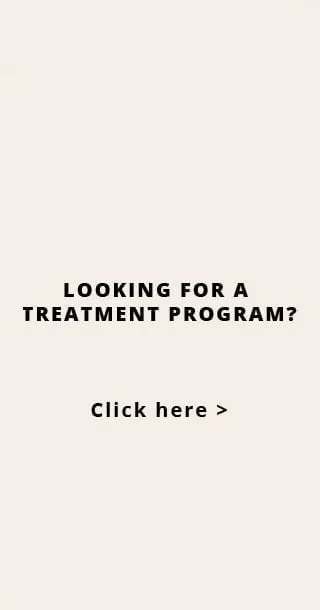Estimated reading time: 8 minute(s)
Up to 68 percent of people with an alcohol use disorder also suffer from co-occurring depression. The connection between these two conditions is complex, yet most experts agree that they feed off one another. In many instances, managing alcoholism relieves the symptoms of co-occurring depression; however, alleviating depression does not resolve alcohol addiction. The best way to proceed in this case is by seeking help from a dual diagnosis program that focuses on both conditions simultaneously and provides the necessary support to live a happy, alcohol-free life.
Exploring the Relationship Between Alcoholism and Depression
Alcohol abuse and depression share a close connection.[1] Many people with depression, especially those with no proper diagnosis yet, turn to alcohol to escape their symptoms. Such people are desperate to dump their depressive thoughts even temporarily and may start indulging in alcohol routinely because of its pleasurable effects. This is exactly the reason why alcohol abuse is so rampant in depressed individuals.
Read Also About Alcoholism And Schizophrenia
A lot of people are also tempted to use alcohol as a medication that helps distract their minds from the persistent feelings of gloom and sadness. While alcohol does work perfectly to relieve certain symptoms of depression, it ultimately worsens them in the long run. Consequently, many depressed individuals end up worsening their issues and drink even more alcohol to control the damage. This often leads them into a damaging cycle of abusing alcohol to self-medicate for depression, whereas depression worsens because of alcohol abuse.
Keep in mind that alcohol is a depressant of the central nervous system that slows down the entire body. Research has persistently shown how using alcohol increases the severity and duration of most depressive episodes. Additionally, alcohol abuse also raises the possibility, severity, and frequency of suicidal thoughts. At the same time, too much alcohol also negatively impacts other aspects of life, like career and family, which worsens depressive symptoms.
In some circumstances, alcoholism can also trigger depression. Prolonged use of alcohol leads to drastic changes in the brain, which rewires its neuronal circuitry and impacts the chemical balance. It also changes the neurotransmitter balance in the brain, which, in turn, leads to severe mood changes and depression.
What are the Symptoms of Alcohol Use and Depression?
The following symptoms are suggestive of an underlying diagnosis of depression:
- Sadness
- Guilt
- Feelings of worthlessness
- Poor concentration
- High levels of fatigue
- Not enough energy to complete daily tasks
- Loss of interest in hobbies
- Suicidal thoughts
- Substance use
Alcohol use disorder may manifest in an individual through the following symptoms:
- Drinking too much in one go
- Avoiding everyday responsibilities and chores to drink
- Sneaking alcohol to hide it from others
- Frequent drinking, even on a daily basis
- Continued drinking despite observing its adverse effects on mood, health, and everyday life
- Engaging in risky behaviors, such as driving under the influence or operating heavy machinery while drunk
Drinking with Depression: What are the Causes?
Experts are not sure which comes first: alcohol abuse or depression. What they do now is every individual has a different experience with these conditions and having at least one of them significantly increases the risk of developing the other. For instance, someone who experiences frequent episodes of severe depression may eventually start abusing alcohol to self-medicate. On the other hand, those who frequently drink may experience depressive episodes, forcing them to drink even more.
Some risk factors that contribute to developing alcoholism and depression include the following:[2]
Genetics
Those with a family history of drinking or depression are also more likely to develop them in the future. Known as genetic predisposition, this risk factor quickly passes down from generation to generation.
Personal History
People with a history of trauma, relationship issues, or abuse are much more likely to abuse alcohol or feel depressed.
Personality
People with a negative outlook on life are at a higher risk of developing either of the conditions leading to the other. Similarly, people who find it challenging to engage in social situations or those with low self-esteem are also likely to develop alcoholism or depression.
Can Alcohol Worsen Depression?
Apart from the discussion of alcohol leading to depression or vice versa, many people are interested to know if drinking can exacerbate an already existing depression diagnosis. The answer is yes; alcohol does carry the tendency to alter the body functions in a way that worsens the depressive symptoms. These mechanisms include the following:
- Alcohol works by lowering the levels of norepinephrine and serotonin, two important neurotransmitters that regulate mood. As a result, an individual with depression may feel more depressed.
- Alcohol cuts off the effects of the stress hormones temporarily, which exaggerates depression symptoms.
- Alcohol can activate a specific gene linked to depression and other mental issues. The activation of this gene puts an individual at risk of manic-depressive episodes, depression, seizures, and other psychiatric problems.
- Alcohol causes folic acid deficiency in the body, which not only contributes to brain aging and increases the risk of dementia but also induces depressive feelings in users.
- Alcohol disrupts normal sleep patterns and alters the thought process, both of which contribute to depressive symptoms
How to Help Someone with Alcoholism and Depression
Because the order in which a person develops alcohol use disorder and depression is not clear, it may take some time to understand how to overcome the problem. Regardless of what comes first, removing the alcohol is one of the earliest things to work on.
If you have a depressed alcoholic in your circle and intend to help them out, start by encouraging them to seek help for their alcohol use. Some of these individuals only develop a mental illness during periods of heavy drinking, so when they detox and quit alcohol, their depressive symptoms subside on their own. However, this does not always hold true, and many people continue to experience depression even after they have quit alcohol use.
Due to the reasons mentioned above, it can be difficult to stop the cycle of alcoholism and depression until a multi-faceted approach that targets both issues together is available. In general, an ideal treatment approach for these disorders must focus on the following:
- Changing an individual’s perspective to help them stay motivated and determined to reach their goals
- Help them learn coping skills that prevent them from using alcohol during periods of depression
- Making them aware of their reactions, behaviors, and triggers
- Practicing non-judgment
- Finding them strong social support systems that help them build healthy relationships they can rely on for long-term recovery
To reach the goals mentioned above, most people seek help from an alcohol and depression rehab.
Alcohol and Depression Treatment
Regardless of how severe your depression or alcohol use disorder is, treatment is available. The earlier you seek treatment, the better. Due to the nature of these co-occurring issues and the risks attached, experts recommend seeking treatment from a rehabilitation facility specializing in treating co-occurring disorders. These facilities provide safe and effective programs that not only target the active issues but also prepare individuals to acclimate back into daily life without resorting back to their old issues. Many of these rehab centers also provide aftercare services that support patients for months after they finish treatment.
Some of the most common therapies that an alcoholism and depression rehab uses include:
Medication-Assisted Therapy
This type of therapy uses prescription medications to manage an individual’s withdrawal symptoms during alcohol detox. Four types of medications are typically beneficial at this point, including Acamprosate, Naltrexone, Benzodiazepines, and Disulfiram.
Sometimes, an expert may also include an antidepressant to fight depression from alcohol withdrawal. While these medicines may be extremely beneficial for many, they cannot cure the issues on their own. Hence, combining them with other treatment forms is essential for the best results.
Cognitive Behavioral Therapy
Also known as CBT, cognitive behavioral therapy helps people replace negative thoughts with uplifting and positive feelings. As an essential part of recovery, CBT also teaches people about identifying triggers, finding different ways to cope with cravings, and setting realistic goals for treatment. CBT typically begins in a rehab setting, but patients may continue it even after they finish treatment with the help of a community-based counselor.
Group Therapy
Group therapy provides a platform to meet and facilitate discussions among peers who are fighting similar co-occurring issues. Depending on the program type, these sessions occur frequently throughout the week. For most people, group therapy provides an outlet to openly talk about the highs and lows of their experience and offer advice to others moving past difficult times. Group therapy is also a common part of many aftercare services so that patients can continue working on recovery in an effective way.
FAQs
How much alcohol can cause depression?
There is no set about of alcohol that can lead to depression symptoms. Experts recommend not exceeding the daily limit to avoid the side effects and potential diseases it may lead to. For men under the age of 65, the daily limit of alcohol is four standard drinks per day and 14 drinks per week. On the other hand, men older than 65 years and women of any age group must not have more than three drinks a day or seven drinks a week to avoid the harmful effects of alcohol.
Is there any other non-psychiatric connection between alcohol and depression?
Most experts agree that both alcohol use disorder and depression share a common pathophysiology in the way that both are neuroinflammatory conditions. This means that both issues are capable of causing inflammation in the brain, damaging it in the long run. Because of this connection, many treatment options for these conditions include anti-inflammatory diets and lifestyle modifications that aim to reduce toxin load that may otherwise contribute to neuroinflammation.
Can I control my alcoholism through habit transformation?
Yes, there are many things you can do to control your alcoholism. Some of these strategies include the following:
- Avoid drinking alone
- Do not keep any alcohol in the house
- Use relaxation techniques and exercise to manage stress instead of going for a drink
- Limit drinking alcohol with meals only
Does alcohol cause depression?
Just because alcohol is a depressant does not mean it can lead to depression. However, it does indicate that alcohol can slow down bodily symptoms and change the way your brain thinks, feel emotions, and regulate mood. So, we can say that alcohol contributes to depression, but this may not happen to everyone.
Can depression cause alcoholism?
Depression may not always cause alcohol addiction. However, if you start relying on alcohol to manage the depressive symptoms or the distress they lead to, it may ultimately lead to tolerance and depression. Once alcoholism takes hold, it may easily mask the symptoms or confuse them with the symptoms of other mental health issues.
References
1 Kuria, M. W., Ndetei, D. M., Obot, I. S., Khasakhala, L. I., Bagaka, B. M., Mbugua, M. N., & Kamau, J. (2012). The Association between Alcohol Dependence and Depression before and after Treatment for Alcohol Dependence. ISRN psychiatry, 2012, 482802. https://doi.org/10.5402/2012/482802
2 McHugh, R. K., & Weiss, R. D. (2019). Alcohol Use Disorder and Depressive Disorders. Alcohol research: current reviews, 40(1), arcr.v40.1.01.


